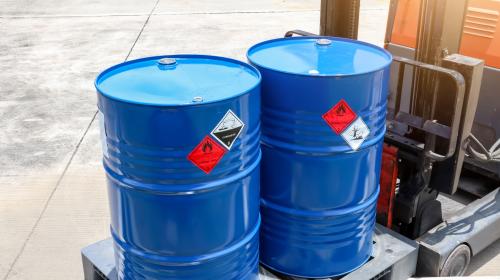The Resource Conservation Recovery Act (RCRA) is one of the most important sets of regulations by the Environmental Protection Agency (EPA) of which businesses should be aware. RCRA regulations on hazardous waste management not only protect the environment and human health, but understanding and following them also protects companies from incurring heavy EPA violation fines, lawsuits, and criminal prosecution. RCRA regulations deal with properly managing and disposing of hazardous and solid wastes and underground storage tanks containing certain chemicals or petroleum. Companies that generate these types of waste must be knowledgeable about the details and updates to RCRA waste disposal regulations or risk serious threats to their bottom line.
Of course, consulting RCRA experts, like those at Enviro-Safe, can save you precious time and minimize your risk of being in noncompliance. State and local regulations for waste disposal in your area might also be more stringent and vary by location, and if you are transporting your waste over some distances, following RCRA regulations can get complicated quickly. Our experts can help you better understand (and comply with) disposal regulations and paperwork for transportation, storage and disposal of your hazardous waste. But it is also important businesses have a working knowledge of common missteps other companies make that lead to RCRA waste disposal noncompliance. Knowing common errors – and how to avoid them – will ultimately save you your good reputation, time and money.
Error 1: Improper RCRA Waste Disposal.
Disposal violations are perhaps the most obvious – and one of the easiest to avoid. The EPA fines companies that mistakenly or intentionally improperly dispose of their hazardous waste by dumping it into the drain, municipal dumpsters and sewers. Generators can avoid these violations by knowing their waste generator status, having a complete understanding of the hazardous wastes they are responsible for, and working with a reliable TSDF to ensure compliance. Companies must also remain up-to-date about changes to RCRA regulations that apply to them. For example, a rule that began August 2019 now regulates certain pharmaceuticals from being disposed of down the drain. Non-empty chemical containers need to be disposed of properly and cannot go in the regular trash. The EPA also heavily regulates disposal of toxic compounds, like mercury. So if your company generates toxic materials, be sure you understand proper handling for those materials to be in compliance and protect employee health.
Error 2: Inadequate Hazardous Waste Manifests.
Pay attention to your paperwork. Any hazardous waste that is transported offsite must have an accompanying Uniform Hazardous Waste Manifest. These forms are required by both the EPA and the Department of Transportation. If your hazardous waste manifests are requested, you must be able to produce them from the last three years, so be sure to keep copies. Generators must also be sure to obtain signed copies of the manifests upon receipt from the receiving facility, since the generator ultimately has “cradle-to-grave” responsibility for their waste. If you are unsure of whether or not you are keeping proper records of your hazardous waste, do not hesitate to call experts who can help you, like those at Enviro-Safe Resource Recovery. Consulting experts and being assured your paperwork is in order could save you thousands of dollars in EPA violation fines.
Error 3: Inadequate Employee Training.
Failed inspections, unnecessary health risks, explosions, fires and health and safety violation fines have something in common: they can be prevented with proper employee training. Hazardous waste disposal poses many risks to employee health but providing training for employees in waste handling, management, and emergency preparedness helps them safely carry out their duties without risking lives. No matter your generator status, both large and small quantity generators are required to provide training for "hazardous waste personnel", though documentation and training frequency varies by state. Small quantity generators must ensure that hazardous waste personnel are "thoroughly familiar" with waste handling and emergency procedures so they can perform their jobs in a way that maintains compliance. Large quantity generators must provide training that satisfies the requirements found in 40 CRF 262.17(a)(7). Annual refresher training is required. It takes time, expertise and money to properly train employees, but the cost of not doing so could be in the hundreds of thousands – not to mention potential lawsuits, legal action and worse, lives lost.
Additional training includes facility training plans, contingency planning, and making sure employees have DOT hazmat training before they sign the Hazardous Waste Manifest.
Today’s progressive companies look beyond compliance and are stepping up their game to develop cost-effective health and safety programs that are integrated with their core business objectives. To best serve your employees and your company’s bottom line, consult experts in strategic safety training.
RCRA regulations were put in place to protect human health and the environment. Understanding them can be complicated, but it’s important to understand them or to work with a TSDF that will help you interpret the regulations to avoid at minimum costly fines. Enviro-Safe Resource Recovery will help minimize the risk of being in noncompliance while working towards meeting your sustainability goals.
In part 2 of this series we will discuss more of the common violations for RCRA regulations.
Be sure to check out Part Two where we discuss more of the most common RCRA violations!



